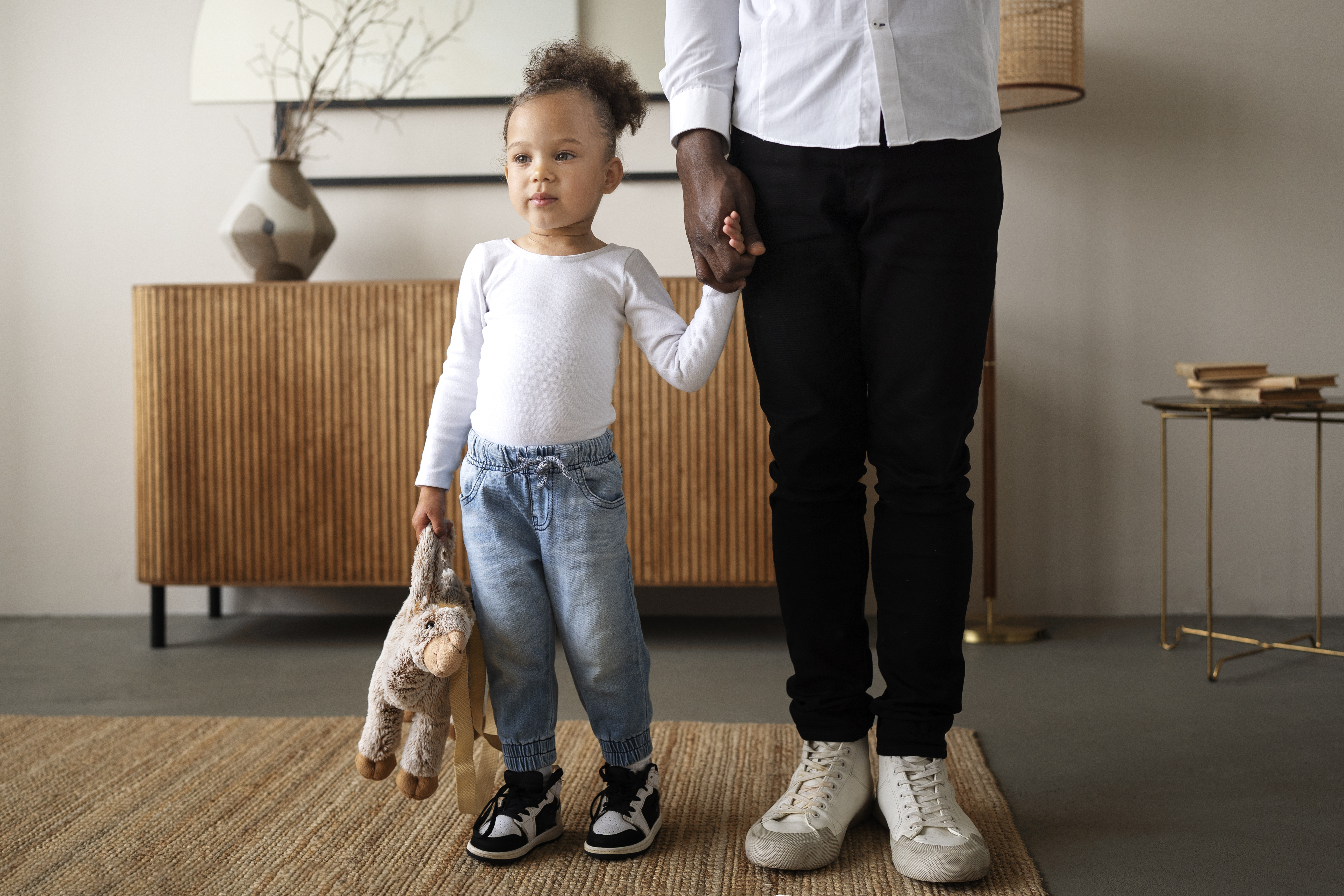 Return to Articles
Return to Articles
10.01.2025
Youth Mental Health First Aid: Empowering Nevada's Families and Communities

Every parent, caregiver, and community member wants the best for the children and teens in their lives. Yet, mental health challenges among youth can often feel overwhelming and confusing.
Recognizing the signs early and knowing how to respond can make a significant difference. This is where the Youth Mental Health First Aid (YMHFA) program, offered by The Children’s Cabinet, steps in.
As we observe National Mental Health Day in October, it is the perfect time to spotlight this vital program, which equips adults with the tools and confidence to support youth struggling with mental health or substance use challenges.
In this article, we'll explore what the YMHFA program is, why it matters, and how it benefits families and communities across Nevada.
What is Youth Mental Health First Aid?
Youth Mental Health First Aid is an evidence-based program designed to teach adults—parents, teachers, caregivers, and community members—how to identify, understand, and respond to signs of mental health challenges and substance use in adolescents (ages 12-18).
Just like traditional first aid prepares people to respond to physical injuries, YMHFA prepares participants to provide initial support to youth in mental health crises until professional help can be obtained.
The Children’s Cabinet, a leading organization in Nevada providing support and resources for families and children, brings this program to communities statewide. Through structured training sessions, participants learn to recognize symptoms of anxiety, depression, substance use, eating disorders, and other mental health challenges. The program emphasizes empathy, listening, and guiding youth to professional support.
Why Youth Mental Health First Aid Matters
Mental health challenges among youth are increasingly common. According to the National Alliance on Mental Illness, 1 in 5 adolescents experience a mental health condition each year, yet many do not receive the help they need. Left unaddressed, these challenges can impact school performance, social relationships, and overall well-being.
YMHFA equips everyday adults with the knowledge and confidence to act early. Recognizing early warning signs can prevent crises, reduce stigma, and ensure youth receive timely care. It also builds stronger community support networks, creating safer, more responsive environments for young people to thrive.
How YMHFA Supports Families and Communities
The benefits of YMHFA extend beyond individual participants. By teaching adults how to recognize and respond to mental health challenges, the program strengthens families and communities:
- Empowering Parents and Caregivers- Parents often struggle to know how to respond to their child’s mental health needs. YMHFA provides practical strategies, giving caregivers the tools to recognize warning signs and support their child’s emotional well-being.
- Strengthening Schools and Organizations- Teachers, school staff, and youth program leaders who participate in YMHFA can create more supportive environments. Early intervention in school settings can prevent disruptions and promote positive outcomes.
- Reducing Stigma- Education helps combat the stigma surrounding mental health. YMHFA encourages sensitive, understanding conversations that promote acceptance and reduce shame for youth facing challenges.
- Creating a Network of Support- When multiple adults in a community are trained, youth are more likely to find someone they trust. This increases the chances they will seek help when needed.
Participant Experiences
Many adults who complete YMHFA training report feeling more confident in supporting youth. Parents describe recognizing changes in their child’s behavior earlier and knowing how to respond effectively. Educators share that the program has enhanced their ability to support students facing stress, anxiety, or other challenges.
One participant noted, “I used to feel helpless when my student seemed withdrawn and anxious. After taking Youth Mental Health First Aid, I understood how to approach the situation, listen actively, and connect them with the support they needed. It was a game-changer for our classroom.”
National Mental Health Day and Awareness
October is a time to raise awareness about mental health. National Mental Health Day encourages individuals and communities to focus on well-being, break stigma, and highlight programs that make a difference—like YMHFA.
By learning how to support youth effectively, adults honor the spirit of National Mental Health Day, contributing to a healthier, more resilient generation. Through education and awareness, programs like YMHFA turn concern into action, equipping Nevada's families to face challenges with compassion and confidence.
Getting Involved
YMHFA training is available to parents, caregivers, teachers, and community members across Nevada. Sessions are often offered both in-person and virtually to maximize accessibility.
For those interested in learning more or participating, The Children’s Cabinet provides information, schedules, and registration details on their website.
Conclusion
Youth Mental Health First Aid is more than a training program—it is a lifeline for families, schools, and communities in Nevada. By equipping adults to recognize and respond to mental health challenges, YMHFA fosters early intervention, reduces stigma, and strengthens the support network surrounding youth.
This October, as we observe National Mental Health Day, consider how you can make a difference in the lives of young people around you. Whether as a parent, educator, or community member, taking part in Youth Mental Health First Aid can empower you to be a crucial ally for Nevada’s youth
Learn More
Visit The Children’s Cabinet to learn more about Youth Mental Health First Aid and how you can get involved. Together, we can build a stronger, more supportive community for the next generation.
Works Cited
Children’s Cabinet. “Youth Mental Health First Aid.” The Children’s Cabinet, https://www.childrenscabinet.org/who-we-serve/i-am-a-parent/youth-mental-health-first-aid/.
First 5 Nevada. “First 5 Nevada: Supporting Young Children and Families.” First 5 Nevada,https://www.first5nevada.org/.
National Alliance on Mental Illness (NAMI). “Mental Health by the Numbers.” NAMI, https://www.nami.org/mhstats.






